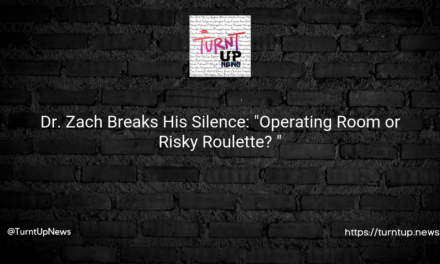🌍🌱 TITLE: Biden’s Bold Move: A New Era of Environmental Justice for All 🌍🌱
TL;DR: President Biden has signed an executive order that aims to revitalize the nation’s commitment to environmental justice for all. This order marks a significant step in addressing longstanding environmental injustices and inequities faced by communities across the United States. It focuses on protecting vulnerable communities from pollution and adverse environmental impacts, strengthening engagement with these communities, promoting the latest scientific research, and increasing accountability and transparency in federal environmental justice policies. With this comprehensive approach, the Biden administration seeks to ensure that everyone, regardless of race, income, or zip code, can enjoy a safe and healthy environment.
📰 FULL STORY:
President Joe Biden and Vice President Kamala Harris are determined to create a future where every individual can breathe clean air, drink clean water, and live in a healthy community. In line with their commitment, President Biden launched an ambitious environmental justice agenda during his first week in office. Now, to further solidify that vision, he has signed an executive order that will embed environmental justice principles into the work of federal agencies, ensuring measurable progress that communities can rely on.
Environmental justice is a central focus of the Biden-Harris Administration’s whole-of-government approach. For far too long, marginalized communities across the country have borne the brunt of toxic pollution, inadequate infrastructure, and essential service underinvestment. These injustices have often been rooted in a legacy of racial discrimination, including redlining. Moreover, these communities, already burdened by environmental injustice, face even greater challenges due to the impacts of climate change.
The newly signed executive order aims to address these persistent issues head-on and ensure that everyone, regardless of their background, can benefit from the protections enshrined in our nation’s environmental and civil rights laws. The order strives for cleaner air and water, reduced health risks such as asthma and cancer, improved access to green spaces, safe and affordable housing, and sustainable transportation options.
By deepening the commitment of executive branch agencies to environmental justice, President Biden seeks to make it a fundamental duty of these agencies. The executive order emphasizes that environmental justice should be central to the implementation of our core civil rights and environmental laws. This move aims to better protect overburdened communities from pollution and other environmental harms by addressing and preventing disproportionate impacts. It also mandates that federal facilities notify nearby communities in case of toxic substance releases, providing essential information about health risks and necessary precautions through public meetings.
Recognizing the exclusion and significant barriers faced by communities with environmental justice concerns, the executive order highlights the importance of active public participation and just treatment in agency decision-making processes. It acknowledges racism as a driving force behind environmental injustice and directs agencies to facilitate meaningful engagement and consultation, including strengthening nation-to-nation relationships with Tribal communities.
In pursuit of environmental justice, the executive order calls for the promotion of the latest scientific research, data, and analysis of cumulative impacts. It emphasizes the need to identify and address gaps in knowledge related to environmental justice and make relevant information more accessible to communities. To ensure a coordinated approach, a new Environmental Justice Subcommittee will be established within the National Science and Technology Council, led by the Office of Science and Technology Policy.
To enhance interagency coordination, the executive order expands the White House Environmental Justice Interagency Council, addressing current and historic environmental injustices through a whole-of-government strategy. Furthermore, a new Office of Environmental Justice will be launched within the White House Council on Environmental Quality, coordinating the implementation of environmental justice policies across federal agencies and fostering transparency and accountability through environmental justice strategic plans and assessments.
As a continuation of prior efforts, the executive order honors and builds upon the foundation of Executive Order 12898, which recognized the disproportionate impacts of harmful pollution on low-income communities





